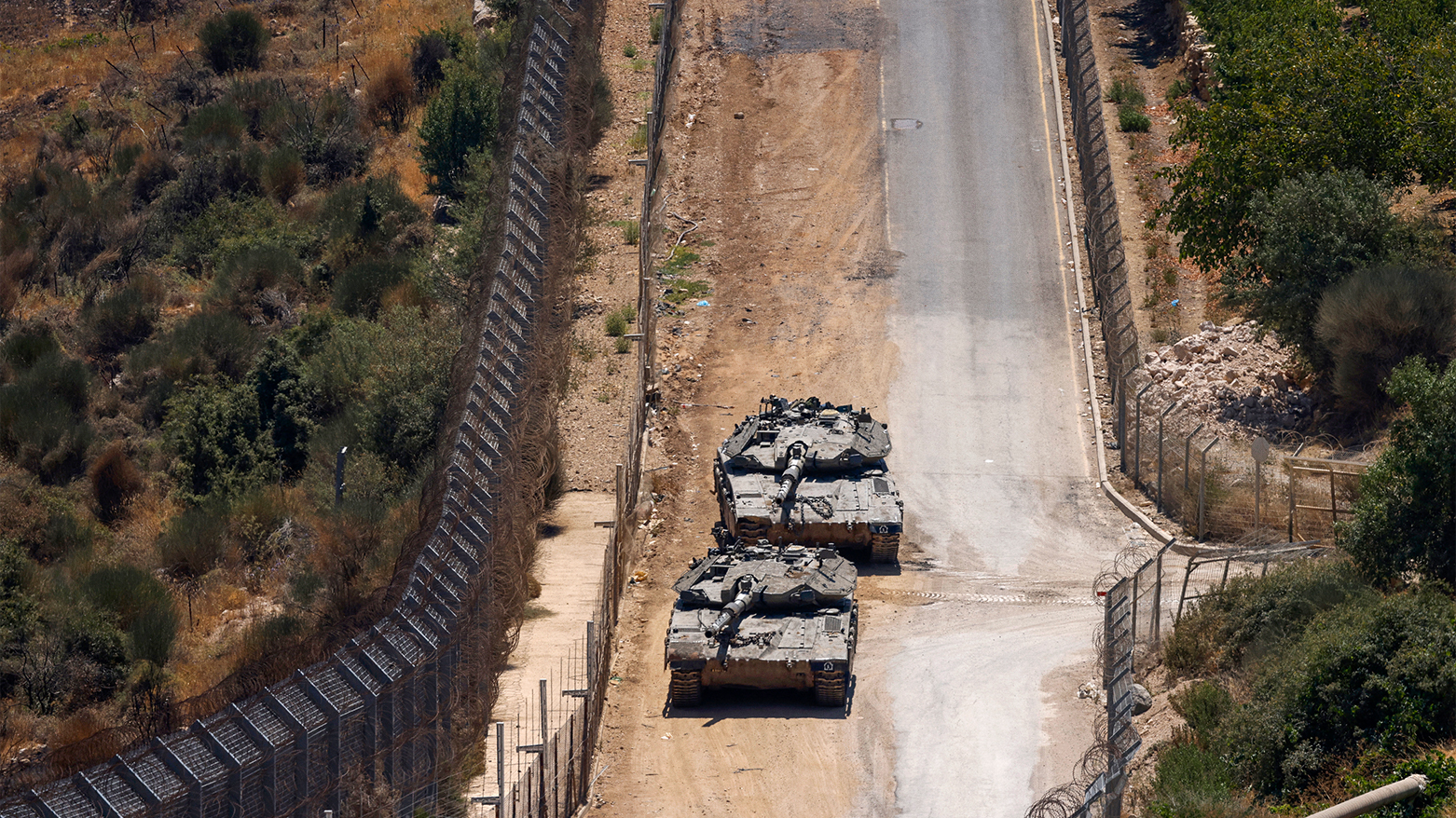Syrian Army Pulls Heavy Weapons Back From Southern Front
Syria has withdrawn heavy weapons from its south amid talks with Israel on a demilitarized zone. The move follows deadly unrest in Sweida, Israeli strikes, and U.S.-brokered mediation efforts as Damascus and Tel Aviv advance rare security negotiations.

Erbil (Kurdistan24) – Syrian government forces have withdrawn heavy weapons from the country’s south, a move confirmed by a military official on Tuesday amid Israel’s demand for a demilitarized zone and ongoing negotiations between Damascus and Tel Aviv. The development follows months of deadly sectarian violence in Sweida province and coincides with a series of diplomatic engagements involving Syria, Israel, and the United States.
A Syrian military official, speaking to AFP on condition of anonymity, confirmed: “Syrian forces have withdrawn their heavy weapons from southern Syria.” The official explained that the process began around two months ago, shortly after the eruption of deadly sectarian violence in the Druze-majority province of Sweida.
Israel, which has a significant Druze community, bombed southern Syria during the unrest, declaring that its actions were both in defense of the Druze minority and in enforcement of its longstanding demand for a demilitarized zone in the area.
A separate diplomatic source in Damascus told AFP that the pullback extended to areas reaching up to about 10 kilometers (six miles) south of the capital.
The weapons withdrawal comes as President Ahmed al-Sharaa acknowledged ongoing negotiations with Israel aimed at securing a broader security arrangement. Last week, al-Sharaa revealed that Syria was negotiating with Tel Aviv to reach an agreement that would pave the way for Israel to withdraw from areas it occupied following the overthrow of former president Bashar al-Assad on December 8, 2024.
Since Assad’s ouster by Islamist-led forces, Israel has deployed troops to the UN-patrolled buffer zone in the Golan Heights, an area that has separated Israeli and Syrian forces since the 1973 Arab-Israeli war. Israel has also carried out hundreds of airstrikes in Syria and expanded its incursions deeper into the south.
The diplomatic source disclosed that a new meeting between Syrian and Israeli officials is scheduled to be held in Baku on Friday.
On September 13, interim President al-Sharaa directly accused Israel of seeking to divide Syria and exploit regional instability. He stressed that security talks were already underway, linked to the 1974 disengagement agreement signed after the October War.
“Israel attempts to exploit regional instability to impose partition on Syria,” al-Sharaa declared. “We are engaged in security negotiations with them to ensure a return to the terms of the 1974 agreement.”
He noted that Israel considered Syria to have “exited” the disengagement pact after Assad’s fall, using this claim to justify its strikes inside Syria. Damascus, however, he insisted, has remained committed to the accord, and the purpose of ongoing negotiations is to restore the pre-December 8 status quo.
The weapons withdrawal and parallel Syria-Israel dialogue unfold against the backdrop of increased U.S. diplomatic involvement. On September 12, al-Sharaa hosted Admiral Brad Cooper, the newly appointed commander of U.S. Central Command (CENTCOM), in Damascus. The meeting, attended also by U.S. Special Envoy Tom Barrack, addressed both political and military cooperation.
“The meeting addressed prospects for cooperation in the service of shared interests and consolidating the foundations of security and stability in Syria and the region,” the Syrian presidency stated, describing the atmosphere as “positive” and reflective of a mutual interest in strengthening the Damascus-Washington partnership.
Earlier this summer, on July 25, Syrian Foreign Minister Asaad al-Shaibani and Israeli Strategic Affairs Minister Ron Dermer met in Paris in a U.S.-brokered initiative. U.S. Special Envoy Tom Barrack revealed: “I met this evening with the Syrians and Israelis in Paris. Our goal was dialogue and de-escalation, and we accomplished precisely that. All parties reiterated their commitment to continuing these efforts.”
The Paris meeting came as southern Syria was engulfed in violence, with the Syrian Observatory for Human Rights announced that the death toll in climbed to 2000 death in Sweida. The unprecedented bloodshed drew international alarm and prompted urgent mediation efforts.
Israel and Syria have no diplomatic relations and have technically remained at war since 1948. Despite the lack of formal ties, recent months have seen the most direct contacts between the two countries in decades.
The withdrawal of heavy weapons in the south appears to be part of these delicate negotiations, which aim to reduce military tensions and stabilize the volatile border region. With further meetings planned in Baku, Syria’s interim government is signaling its readiness to engage in structured security talks, even as it publicly accuses Israel of exploiting the country’s fragility.